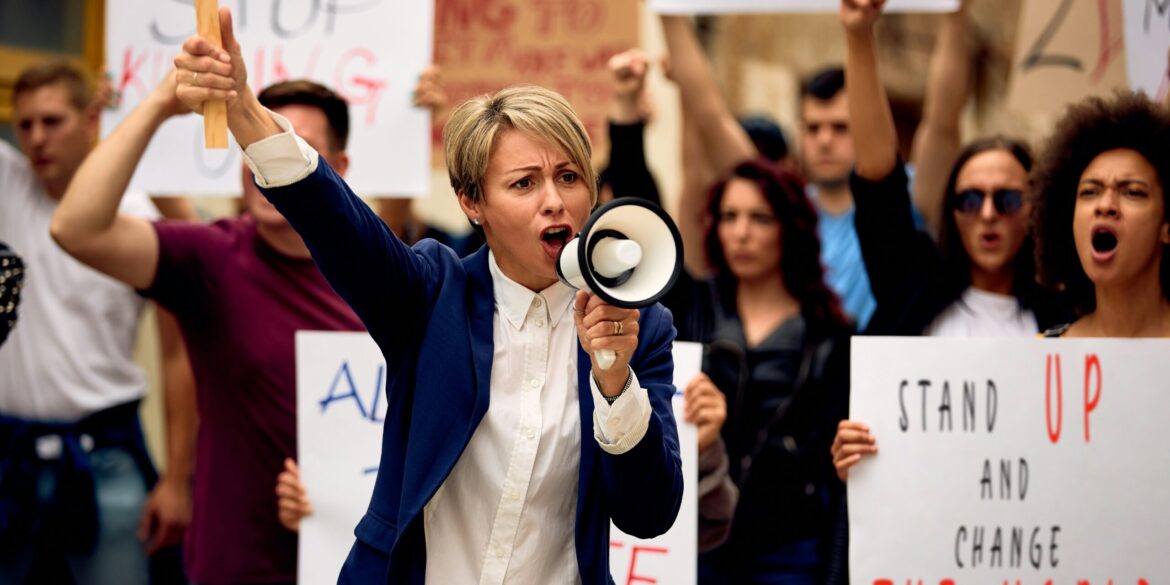The Texas Legislature has passed a bill that imposes new restrictions on protests at public colleges and universities. Senate Bill 2972, which passed with bipartisan support, aims to regulate expressive activities on campus, with specific provisions targeting when, where, and how protests can occur. The bill is set to be signed into law by Governor Greg Abbott later this month, despite strong opposition from student groups and civil liberties organizations.
Key Provisions of Senate Bill 2972
Senate Bill 2972 places several new restrictions on college protests, particularly concerning the timing and location of demonstrations. The bill prohibits any protests or rallies on public campuses between the hours of 10 p.m. and 8 a.m., effectively curbing overnight demonstrations. It also bans the use of face masks or other facial coverings during protests, arguing that such coverings hinder accountability and make it more difficult for law enforcement to manage crowds.
In addition, the bill mandates that universities designate specific areas on campuses where protests and other expressive activities can take place. This provision has been one of the most controversial aspects of the bill, as critics argue that it limits students’ ability to engage in free expression and disrupts the broader campus culture of activism.
The bill also requires that all student groups seeking to organize protests submit a request for approval at least 72 hours in advance. Failure to comply with these regulations could result in disciplinary action, including suspension or expulsion for student organizers.
The Debate Over Free Speech and Safety
Supporters of the bill argue that the new restrictions are necessary to maintain order and ensure that campus protests do not disrupt the educational environment. Proponents claim that limiting the hours and locations of protests will help prevent disturbances to academic activities, reduce campus violence, and ensure the safety of all students.
“This bill strikes a balance between ensuring that students have the right to express themselves and making sure that their activities do not interfere with the education of others,” said Senator John McCauley, the primary sponsor of the bill. “Our universities are institutions of learning, not places for chaos and disruption.”
However, opponents of the bill see it as an infringement on students’ First Amendment rights. Critics argue that limiting when and where protests can occur sends a message that the state is trying to suppress dissent and stifle free speech on college campuses. “This bill is a direct attack on students’ right to protest and speak out on issues that matter to them,” said Sophia Ramirez, president of the Texas Student Association. “It creates a chilling effect on student activism and silences voices of opposition.”
The ACLU of Texas has also condemned the bill, arguing that it violates constitutional protections of free speech and assembly. The organization has threatened legal action, pledging to challenge the law in court if it is signed by the governor.
The Political Context and Implications
The passage of Senate Bill 2972 comes at a time of heightened political polarization in the U.S., particularly around issues of free speech and activism. Protests on college campuses have become more frequent and more intense in recent years, with student activists taking to the streets to speak out on issues such as racial justice, climate change, and political corruption. The new law has sparked fears that the Texas Legislature is using the guise of public safety to restrict student activism and limit political expression.
The bill is also seen as part of a larger trend of Republican-controlled state legislatures enacting laws that restrict protests and increase government oversight of public universities. In other states, similar bills have been introduced to curb protest activities in response to the rise of protests against police violence and other social issues.
Governor Abbott’s Stance and Potential Legal Challenges
Governor Greg Abbott, who has signaled his support for the bill, is expected to sign it into law before the end of the month. The bill’s passage marks another victory for conservatives in Texas, who have made controlling the direction of higher education a key part of their political agenda. Critics of the bill, however, vow to continue their fight, both in the courts and on the streets.
“The state cannot be allowed to silence student voices under the false pretense of public safety,” said Ramirez. “We will continue to fight for the right to protest and speak out against injustice, no matter what laws are passed.”
Legal challenges to the bill are expected. First Amendment advocates are preparing to challenge its constitutionality in federal court, arguing that the bill violates students’ rights to free speech, assembly, and protest. The outcome of any legal battles could determine the future of protest laws in Texas and potentially set a precedent for other states considering similar legislation.
Conclusion
The passage of Senate Bill 2972 is a significant moment in Texas politics and campus activism. The bill’s restrictions on protests are already generating heated debate, with supporters claiming it is necessary for campus safety and order, while critics argue it is a direct violation of students’ rights. As the bill moves toward Governor Abbott’s desk

